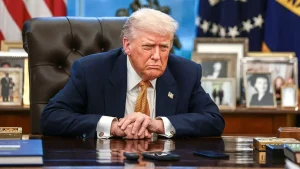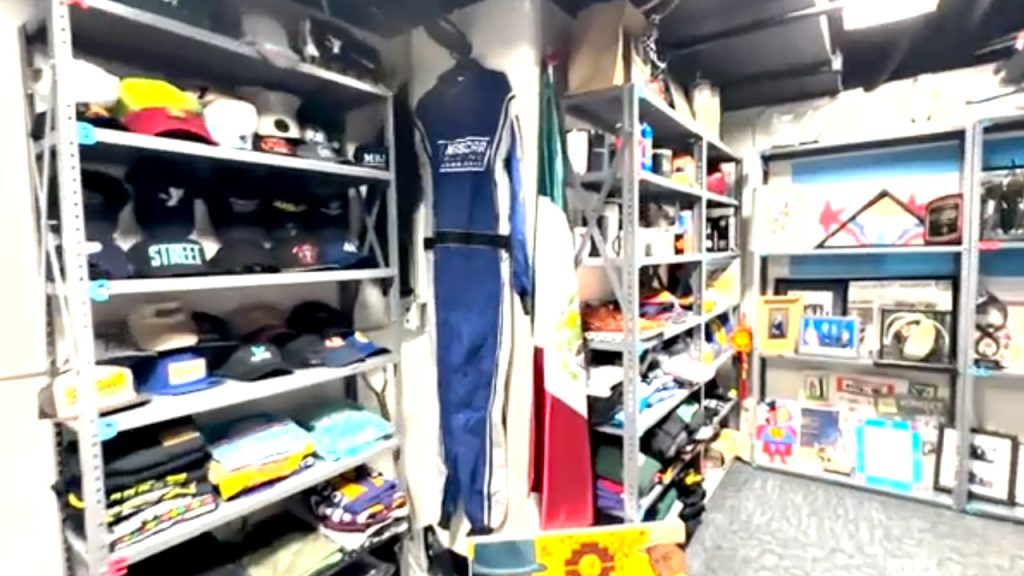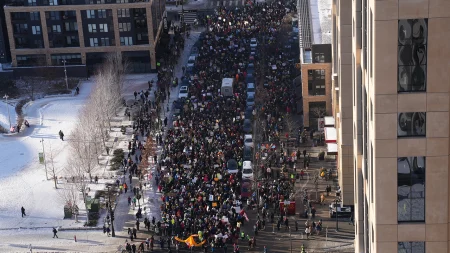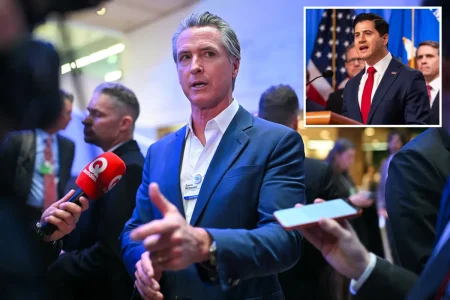Chicago’s Mayor Under Scrutiny: Gift Room Controversy Raises Transparency Concerns
Recent revelations from Chicago’s Office of Inspector General (OIG) have cast a shadow over Mayor Brandon Johnson’s administration, highlighting potential issues with transparency and oversight compliance. The controversy centers around a “gift room” that the mayor’s office publicly showcased in February—a room that appears to have been hastily constructed only after investigators attempted to inspect gifts received by the mayor.
The situation began when OIG investigators tried to conduct an unannounced inspection of gifts reportedly accepted by Mayor Johnson, prompted by allegations that he had received valuable items without proper reporting. Surprisingly, these investigators were denied entry, despite Chicago’s municipal code clearly stating that department premises, equipment, records, and personnel “shall be made available as soon as practicable to the inspector general.” This initial rejection triggered concerns about what might be hidden from public view. Following this blocked inspection attempt, the mayor’s office quickly produced a 21-second YouTube video featuring the gift room and announced new rules regarding mayoral gifts accepted “on behalf of the city.” They also promised to open the room to both press and public—a seeming gesture of transparency that city records now suggest may have been reactive rather than proactive.
The timing raises significant questions: city records reveal the gift room showcased in February was constructed only after the OIG’s initial inspection attempt. This timeline means investigators cannot independently verify where city property—including reported designer handbags, cufflinks, and men’s shoes—was being stored before this room’s creation. The situation grew more concerning when a second unannounced inspection in July was similarly blocked. This time, investigators were attempting to examine a city office where they believed items were being stored contrary to city policy. According to the OIG, a city attorney had instructed an employee not to admit investigators during their initial visit. When the OIG finally gained access weeks later (with the Department of Law present), they confirmed the items were indeed there, vindicating their inspection attempt but leaving questions about why access was initially denied.
Chicago Inspector General Deborah Witzburg did not mince words about the implications of these blocked inspections, stating that “the City of Chicago operates at a deficit of legitimacy with its residents.” Her pointed critique highlighted how the mayor’s office appears to be taking the position that it will open doors to oversight only “when it suits them to do so,” an approach she argues does little to address the city’s long-standing trust issues. The OIG emphasized that unannounced inspections serve a crucial function in oversight work, allowing for unmanipulated assessment of conditions and behaviors that might otherwise be altered before scheduled visits. These inspections represent one of the few tools available to ensure genuine accountability in a system where public trust is already fragile.
In response to these concerning developments, the OIG has issued an advisory with recommendations for the mayor’s office. These include taking appropriate steps to ensure city premises are made available to inspectors as required by law and issuing guidance to city departments clarifying the OIG’s legal authority to access city property. The office’s reluctance to implement previous OIG recommendations—citing provisions unrelated to premise inspections and referencing “evolving interpretations” of ethics ordinances—has only deepened concerns about the administration’s commitment to transparency. This resistance appears particularly troubling given the city’s historical struggles with government accountability and public trust.
As this situation continues to unfold, it raises fundamental questions about the balance between executive authority and oversight mechanisms in Chicago’s government. Mayor Johnson’s office had not responded to requests for comment at the time of reporting, leaving the public without explanations for these apparent barriers to transparency. The controversy serves as a reminder that in democratic governance, the ability of independent watchdogs to verify compliance with rules and regulations isn’t merely bureaucratic procedure—it’s essential to maintaining public trust and ensuring that public officials remain accountable to the citizens they serve. How the Johnson administration responds to these findings may well define public perception of its commitment to ethical governance and transparency.








